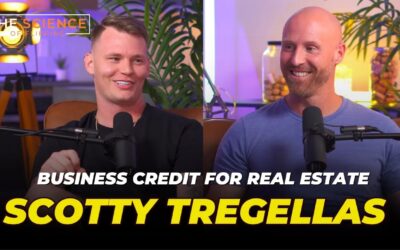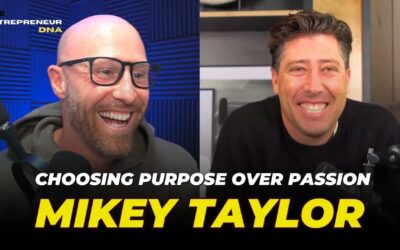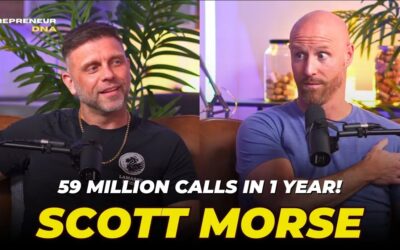Do You need a JV Agreement For Wholesaling?
I’ve actually this week have been asked the question about JV agreements for wholesaler so I want to talk about this because it to be honest with you that is kind of long gone. Are they still applicable? Sure, they absolutely are. But I can tell you right now they’re now no longer needed

https://thescienceofflipping.com/insider


https://www.youtube.com/justincolby


https://www.thescienceofflipping.com/learn-more
And again, excuse me for the way I might sound right now. Hopefully we can edit some of this nasal Lee stuff out but I am feeling roughly 90%. So, you know, things are looking great. With all this said, let’s jump into the JV agreement. Now, what the JV agreement between wholesalers used to be is typically kind of a an exclusive right to market as well as it line items out like a 5050 split or a 6040 split, which had a lot of value back in the day. Now, could there still be value for it now? I would offer? The answer is probably yes. But it’s not necessary anymore. And that’s the highlight I wanted to bring up to this episode is the way I have been doing JV deals is not with a JV agreement with a double assignment. So if you guys are all pretty familiar with wholesaling, obviously, there is an assignment to the end buyer where you collect an assignment fee. Well, if you are co wholesaling or JV being a deal with another investor, then you don’t need a JV agreement per se, you could just simply do a double assignment. So what does that look like? Well, I do about 10 to 20 of these a month closer to 10. I think this month we did 12. And so, you know, the way this works is there’s always an investor, such as myself, that will market directly to the homeowner, and the homeowner, and I negotiate and I contract the property with them. And then that property is marketed out to my buyers. And if my buyer likes the price, I send it out at the difference between my purchase price. And what I sent it out at is essentially going to be my assignment fee. Okay. It’ll be my assignment fee. So let’s say I contracted at 200. And I sent it to my buyers at 210. That $10,000 difference will be my assignment fee now. That’s great. Now there are also times where I will have investors say hey, do you mind if I send this to my buyer? Okay. And by the way, this is flip flop for me too. There are times where I do this exact same thing to other investors where Hey, do you mind if I send this on to my buyer? So let’s just use the example and today with the example that I’m director, homeowner, I find a buyer and let’s just say that buyers an actual wholesaler or another investor that might be able to mark it up so they might be able to find a buyer for two 15 so here’s how this would work. I contracted it with a purchase and sale agreement with the seller. I assign it over to the other wholesaler, he still has the same terms, I still require him to put in $5,000 non refundable, earnest money, he doesn’t get to, you know, skip out on that. And then he will assign it over to his buyer at 215. So I signed it at 210. he submits a $5,000 earnest money deposit, then his buyer comes in at 215 and also submits a $5,000 earnest money deposit. Now, sometimes, do the middle wholesaler not technically send in their money, there are times that they do not there are times where the end buyer ultimately sends in the $5,000, non refundable, earnest money deposit. And that’s the only deposit that happens prior to or after mine, at the open of escrow. So that is what you would do these days. For a JV agreement. That’s a very common resource. Now, if you’re talking about buying a property, if you’re going to be flipping a property and you want to have a JV agreement, that is something different. Okay. So that’s the question I started asking my students about, why are you asking? And their answer was because the investor or the seller who was really just a wholesaler, wanted them to sign a JV agreement, then I told them not to, you don’t need to go send the property out to your buyers, if you bring a buyer tell that the other wholesaler that you will just do a double assignment, and there’s no need at all for a JV agreement. So again, you have one assignment to the original buyer who could be a wholesaler, and then that wholesaler creates another assignment to their buyer. Now, here’s another spin on this whole thing that I’ve done a lot since COVID. Started. Is there are times where if I’m, if I see a property that I think I could sell to my buyers list, because I have a really powerful buyer’s list, very active. I will call that wholesaler and say, Hey, you know, I think you’re probably at the top of the number like, I don’t think I could really mark this up. If I can get it sold at your price, would you be willing to give me 20 $500? And he says, Yes, okay, great. So I sent it to my buyer at his original price, the original wholesalers price, my buyer pulls the trigger, here’s what you do, the original wholesaler will actually assign it to me 20 $500 less than what we sold it for. So there’s still going to be two assignments from there, then we are going to actually, I’m going to mark it up that extra 2500 and then send it to my buyer. Now, here’s the key. If you’re ever the middleman in these scenarios, do not sign your assignment until your buyer signs his or hers. Never put yourself on the hook for something like this until your buyer officially is on the hook for something like this for the deal with earnest money, as well as assign assignment. And so again, that don’t overthink that that’s just you never want to put yourself in harm’s way until your buyers ready to commit. So that is the second version of it where you might not mark it up. You might want to call the original wholesaler say Hey, are you this is your deal? Right? Your direct to the seller? Yeah, great. Okay, great.
Um, I think the number you’re sending it out at it will sell to my buyer. But I don’t think I can mark it up. Do you mind if I bring if I get paid by you 20 $500 into that number. And sometimes they don’t have it right? Sometimes wholesalers are like, Justin, you know, I only have three grand on this deal. So I can’t and then I might say, okay, throw me 500 bucks. And let’s just go get the deal done. Because I know my buyers will move it. So but that’s knowing your buyers. And there are a lot of episodes here on YouTube. By the way, you should be scrolling through my YouTube and watching other videos about buyers, as well as the podcast about buyers. But knowing that my buyers the way I know my buyers, it really gives me quite a great upper hand because I can actually sell something that most other investors can’t. And that’s the power of your buyers. Let’s now have a full system and have two full time disposition girls. I mean, it’s a it’s a business to run a disposition house. Right. And so hopefully this finds you guys well. You know, it’s a question I asked was asked twice this week. And here’s what I think is happening. I think some guru out there is teaching JV agreements, which is fine. They’re just not nearly as applicable these days as It used to be and by the way, there’s nothing. I would tell you. There’s nothing wrong with them. It’s just not needed per se. You could just do a double assignment in, you know, here in Phoenix, there’s so many, like, I’ll tell you, we just did one that had four different assignments in it. It’s insane. Like there’s so many other people wholesaling the wholesale that the wholesale, it’s just wild. So again, if you’re listening to this on iTunes, I would love a five star review if you are not yet watching this, and trust me, this is one you’re gonna want to watch. You need to get over to youtube.com forward slash Justin Colby. Check it out. Subscribe to my channel six videos a week you need to subscribe, turn on your notification. Make sure you’re liking the videos and make sure you’re commenting and asking questions. Until then, talk to you later.



